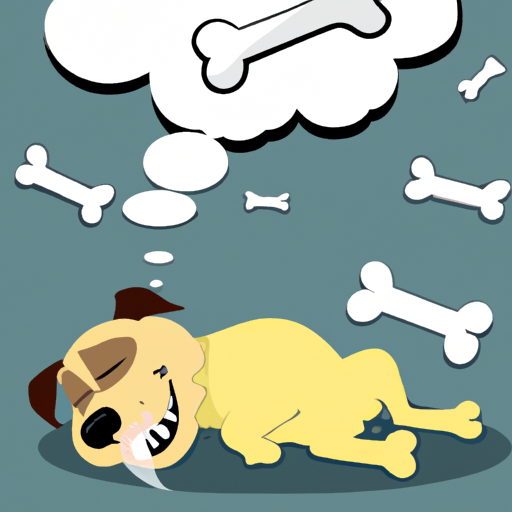As you snuggle up with your furry friend at the end of a long day, have you ever heard them emit a soft snore? You might be wondering, do dogs snore when they are happy? As a loving caregiver, you want to understand every aspect of your pet’s behavior. So, let’s dive deep into this topic.
1. Understanding Dog’s Sleep Patterns
To understand why dogs might snore, it’s essential to understand their sleep patterns. Just like humans, dogs experience different stages of sleep, including REM (Rapid Eye Movement) and non-REM sleep. They spend about 12 to 14 hours a day sleeping, with puppies and older dogs sleeping even more.
Factors Affecting Dog’s Sleep:
- Age: Puppies and older dogs sleep more than young and adult dogs.
- Activity Levels: Dogs that are more active during the day tend to sleep more.
- Health: Dogs suffering from certain health conditions, such as hypothyroidism, may sleep more.
2. Why Do Dogs Snore?
Dogs snore for various reasons, and not all of them are related to their mood or happiness. Causes may range from their sleeping position to underlying health conditions.
Common Causes of Dog Snoring:
- Sleeping Position: Dogs, like people, can snore if they’re in certain positions. This is most common when they’re lying on their back.
- Obesity: Overweight dogs are more likely to snore because excess fat can restrict their airways.
- Allergies: Allergens can cause inflammation in a dog’s airways, leading to snoring.
- Health Conditions: Conditions like hypothyroidism and brachycephalic syndrome can cause dogs to snore.
3. Does Snoring Indicate Happiness?
While it’s tempting to interpret your dog’s snoring as a sign of contentment or happiness, there’s no scientific evidence supporting this idea. Dogs don’t express happiness through snoring the same way humans express happiness through laughter or smiling.
If your dog is sleeping peacefully and snoring softly, it’s likely a sign they’re relaxed and comfortable. However, it’s essential to monitor their snoring and look for any changes that might indicate a health problem.
4. When Should You Be Concerned?
While occasional snoring is normal, excessive or sudden onset snoring can be a cause for concern.
Signs To Watch Out For:
- Increased Frequency: If your dog is snoring more frequently or louder than usual, it might be a sign of an underlying health issue.
- Difficulty Breathing: If your dog seems to struggle to breathe or makes choking or gasping sounds, seek immediate veterinary attention.
- Change in Behavior: Changes in your dog’s behavior, such as increased lethargy, decreased appetite, or sudden weight gain, can indicate a health problem.
5. How To Help Your Snoring Dog?
If your dog’s snoring concerns you, there are several steps you can take.
- Maintain a Healthy Weight: Regular exercise and a balanced diet can help prevent obesity, a common cause of snoring.
- Clean Environment: Keeping your home free of allergens can help reduce your dog’s snoring.
- Use a Humidifier: Dry air can irritate your dog’s airways and increase snoring. A humidifier can help keep their airways moist and reduce snoring.
- Consult a Vet: If you’re concerned about your dog’s snoring, it’s always best to consult a vet. They can rule out any underlying health conditions and provide appropriate treatment.
Frequently Asked Questions
Q: Is snoring normal for dogs?
A: Yes, occasional snoring is normal for dogs, especially if they’re sleeping in certain positions or if they’re a breed with a shortened nose.
Q: Can dog snoring indicate a health problem?
A: While occasional snoring is usually not a cause for concern, sudden onset or excessive snoring can indicate an underlying health problem.
Q: How can I reduce my dog’s snoring?
A: Maintaining a healthy weight, ensuring a clean environment, using a humidifier, and seeking veterinary advice can all help reduce your dog’s snoring.
Q: Is dog snoring a sign of happiness?
A: While it’s a sweet thought, there’s no scientific evidence to suggest that dogs snore when they’re happy. Snoring is more likely a sign of comfort and relaxation.



